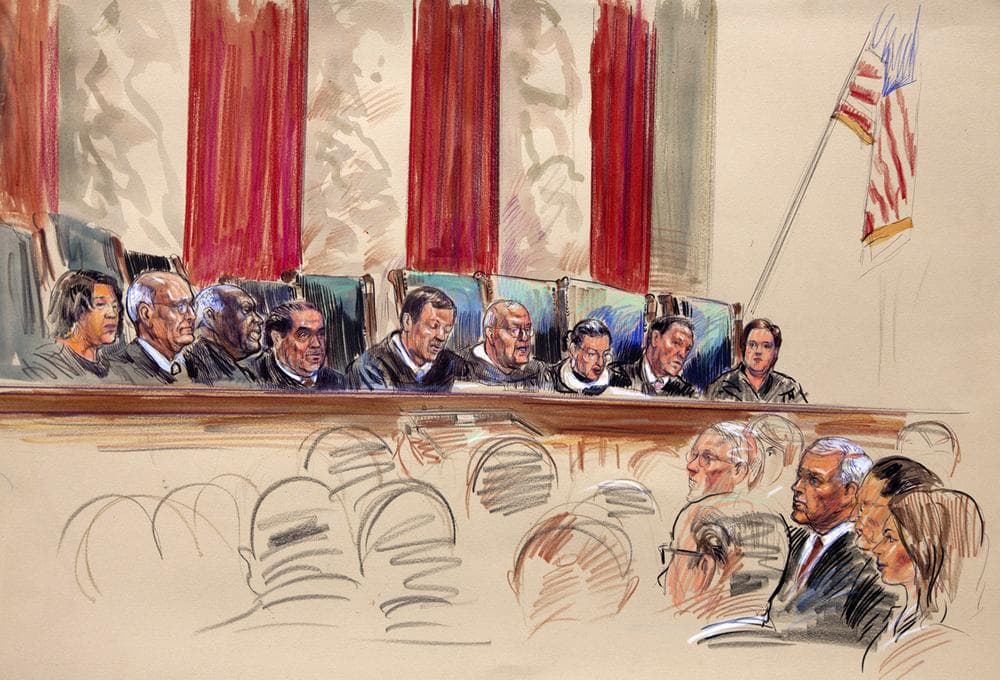Advertisement
SCOTUS Was Right To Curb Feds On Medicaid

Federalism can be compared to a diet. Both the left and right claim to adhere to it, but each abandons it when cravings for the policy equivalent of junk food grow strong.
The left, which normally looks to the national government for policy solutions, cheerfully applauds state efforts to deal with the least local of all environmental problems, global climate change. The right, ostensible guardian of states’ rights, supports Washington’s efforts to define marriage. So it’s surprising to see both liberals and conservatives on the Supreme Court show themselves to be committed federalism weight watchers.
For the first time since 1936, the Court ruled that the national government exceeded its authority when it threatened to withhold federal aid as a weapon to induce states to comply with national policy. The liberal justices joined the five conservatives to invalidate The Patient Protection and Affordable Care Act Medicaid provision.
The PPACA would have allowed the secretary of health and human services to cut Medicaid funding for a state that refuses to raise its benefits to the levels the law sets.
But as Justice Roberts stated, “the Constitution has never been understood to confer upon Congress the ability to require the States to govern according to Congress’ instructions.”
Instead the federal government relies on inducements, giving money to the states with strings attached. If a state does not want to accept the strings, it’s free to not take the money.
But in order to impose its will on the states, the PPACA would employ a more coercive use of its spending power. The heart of the Supreme Court’s ruling is that this form of coercion is no mere “string.” The government is threatening to take away money designated for one purpose, existing Medicaid programs, if the states refuse to go along with another purpose, a vast expansion of Medicaid.
The Supreme Court took the limits of federalism seriously, and so should we. This nation is too vast, too diverse and too complex to be effectively governed from Washington. The framers wisely restricted national authority to an important but limited set of matters, leaving the states to do most of the work of governing. When states use their powers tyrannically, as some Southern states did during Jim Crow, the federal government must intervene to protect citizens’ rights. But such a dreadful example should not blind us.
State borders are liberating. If I don’t want to pay sales or income taxes or drive my motorcycle without a helmet, I can move to New Hampshire. If I prefer to live where the environment is tightly regulated, I can move to Vermont. It is also true that citizens have far greater opportunities to influence state policy than they do to affect national policy.
This ruling has profound consequences for federalism. It makes it far more difficult for Congress to impose its will on the states in the future, and it calls into question current coercive uses of the national government’s spending power. For example, Washington compels state compliance with various provisions of the Clean Air Act by threatening to withhold federal highway funds. The Supreme Court might well decide that there is a sufficient gap between the two programs, making it unacceptable to induce compliance with the former by depriving the states of funds for the latter.
Imposing narrower and stricter limits on national government’s ability to coerce the states would be good for both sides. It would give the states more discretion to decide whether national initiatives truly serve their interests because they would be able to opt out without penalty. And it would force the federal government to face up to the full burdens of the policies it seeks to pursue. Since states could more easily opt out, the national government would have to take on the full responsibility of paying for and administering such policies. This added obligation might well cause it to be more discerning about the actual merits of the policy and more empathetic to the burdens those policy directives impose on the states that have to enact them.
Our national dietitian, the Supreme Court, has done the nation a great service. Its constitutional scrupulousness may do much to reduce the flab that has accumulated in the federal system due to the failure of politicians and judges alike to treat the relationship between the national government and the states with the principled seriousness it deserves.
This program aired on July 31, 2012. The audio for this program is not available.